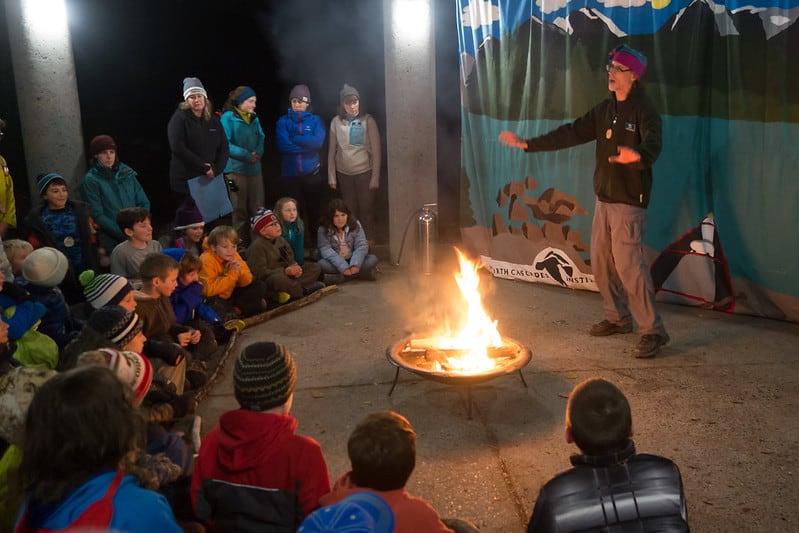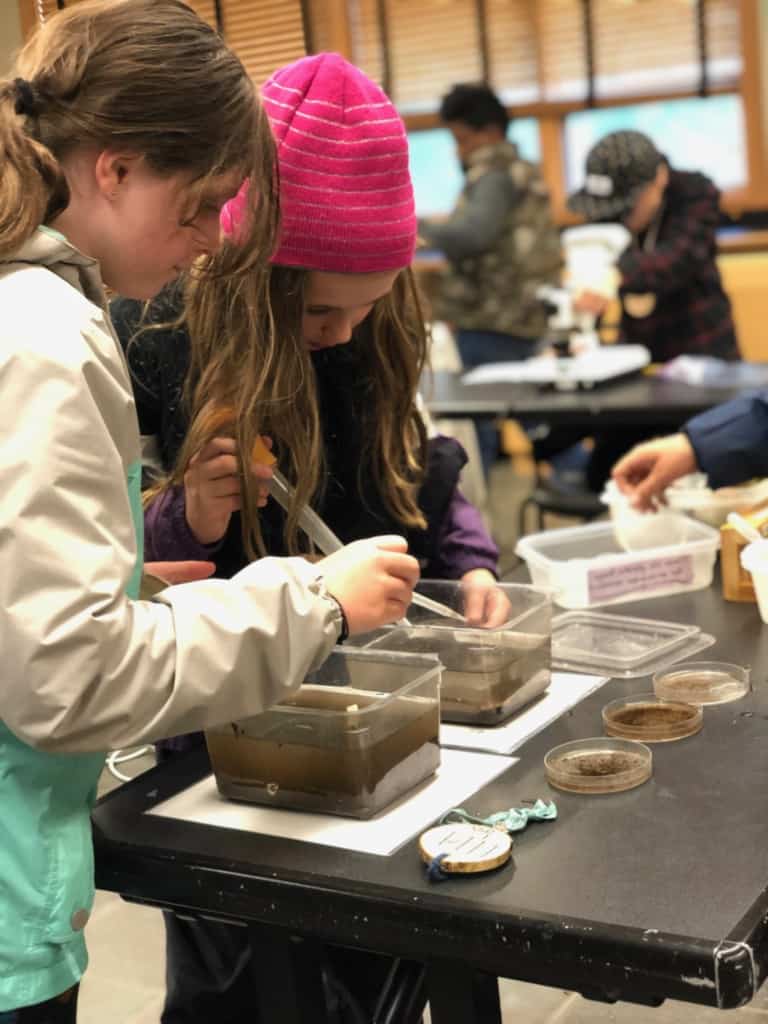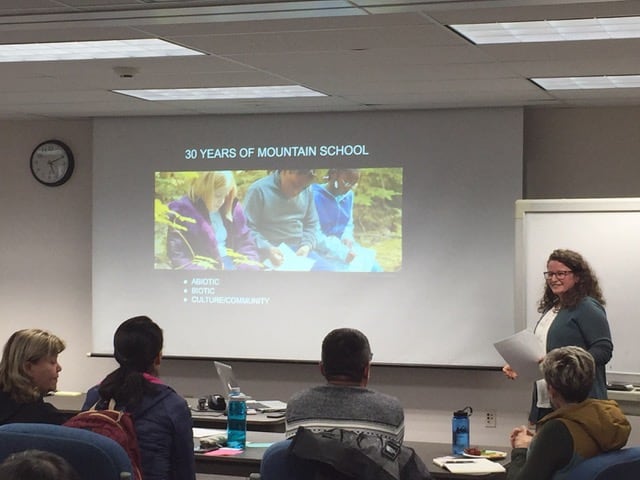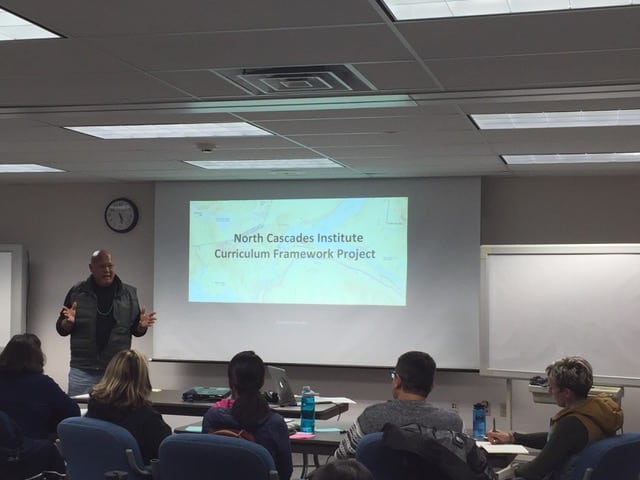
Mountain School Turns 30! Updating our curriculum to better serve students and teachers
2020 marks the 30th anniversary of Mountain School! Over the past 29 years, more than 30,000 youth from Northwest Washington have traveled up Highway 20, past cattle farms and bald eagle sentinels, to experience three days and two nights in the mountains. In that time, teaching about the natural world has changed significantly.
In 2013, Washington State adopted the Next Generation Science Standards (NGSS) and in 2015 adopted Since Time Immemorial curriculum. Over the past few years, we have tacked-on additional lessons and activities to the already existing curriculum in order to keep current with changing standards. However, we would like our program to more directly supplement what teachers are doing throughout the school year in their classrooms. The curriculum redesign is an opportunity for the Institute to press the “reset” button and intentionally integrate and organize all program content to align with these new standards.

Additionally, we are aware that environmental education programs have historically been culturally “tone deaf,” and that students of color have been excluded from environmental education due to family fears about safety, lack of representation of educators from their own cultures, and storytelling that reinforces dominant narratives. Place-based environmental education programs that center stories of displacement, transformation, and inter-dependence implicitly sends the message to all students that they are a vital part of the natural world, not just detached outsiders stopping by for a brief visit.
This summer, we hired a team of curriculum consultants from Three Circles Center to consult on our curriculum redesign project, which began this Fall. The new curriculum will be piloted in Fall 2020.
In October, we held a kick off meeting to officially launch the Mountain School Curriculum Redesign. Those present included 5th grade teachers from school districts we serve, North Cascades National Park employees, the Director of Teaching & Learning from Bellingham Public Schools, the K-6 STEM lead from Sedro-Woolley School District, and an indigenous history professor from University of Washington. Codi Hamblin, the Institute’s School Programs Manager, and two members of the Three Circles Center curriculum consultant team, presented on the evolution of Mountain School over the past 29 years, the goals of the redesign and the project timeline.

The purpose of this kickoff was to introduce stakeholders to the Three Circles team and solicit sign-ups for an Advisory Team. The Advisory Team is intended to be 10-12 volunteers who are “on the ground” in the community and can ensure we stay on course in meeting school and community needs. Core stakeholders who are selected to be a part of the Advisory Team will provide feedback (remotely) on the curriculum at all three stages of development.
In the kickoff meeting, Running Grass, the project lead from Three Circles, shared results from the initial stakeholder survey reiterating that time outdoors and team building were the most cherished components of Mountain School.

Barbara Bolles — also from Three Circles Center — pointed out that nowadays we are overly inundated with talk of “inclusion,” but inclusion is based on the premise of “by invite only.” It begs the question of ‘who is being excluded?’ Three Circles’ approach emphasizes creating a sense of “belonging” instead of “inclusion”. They will be applying the lens of multicultural education to ensure that all students see themselves as a part of the curriculum—that is, that the curriculum is relevant to students personally and reflects their lived experiences.
In a letter supporting the curriculum redesign, Larry Campbell, Community Health Specialist and member of the Swinomish Indian Tribal Community, underscores the timeliness of this redesign: “The tribe believes the relationship with the Institute is a valuable venue in which to provide historical information to the attendees. In keeping with state law requirements that the public schools teach Coast Salish history and culture as a required course, this is the proper time for the Institute to update their curriculum that integrates and works as a stand alone for Institute attendees.”
Through this curriculum redesign, we intend to increase the relevancy of the content covered by centering identity-affirming social-emotional learning. The new curriculum will usher in a new era of teaching for social justice and will impact the lives of thousands of young people for years to come!
Special thanks to Discuren Charitable Foundation, Beardsley Family Foundation, and Hugh and Jane Ferguson Foundation for making this curriculum redesign possible! We are still seeking donations to fully fund this project. If you are interested in supporting this work, please email Cara Stoddard at grants@ncascades.org for more information or make a donation online now at ncascades.org/support/donate.


What is the name of the indigenous history professor from the University of Washington that is helping with this curriculum redesign? Will there be a general public gathering to provide input to the redesign and/or preview the materials as the year progresses? Thanks!